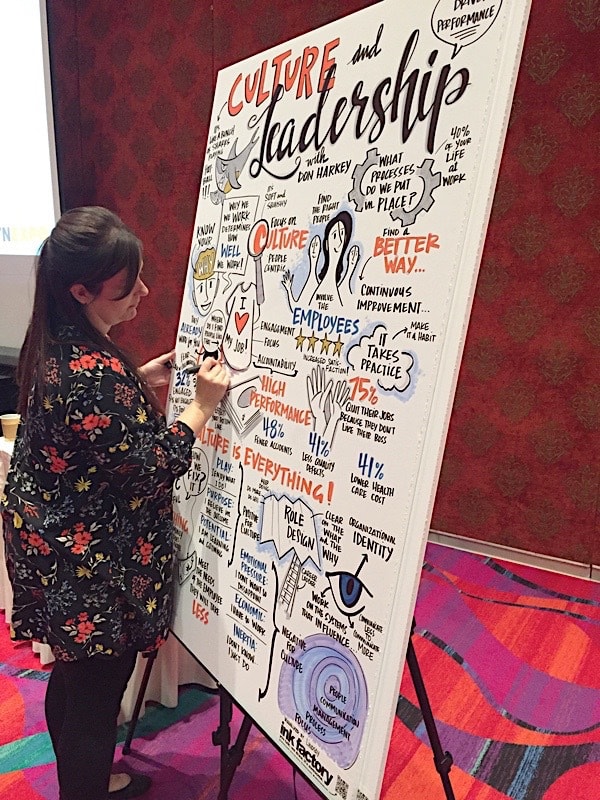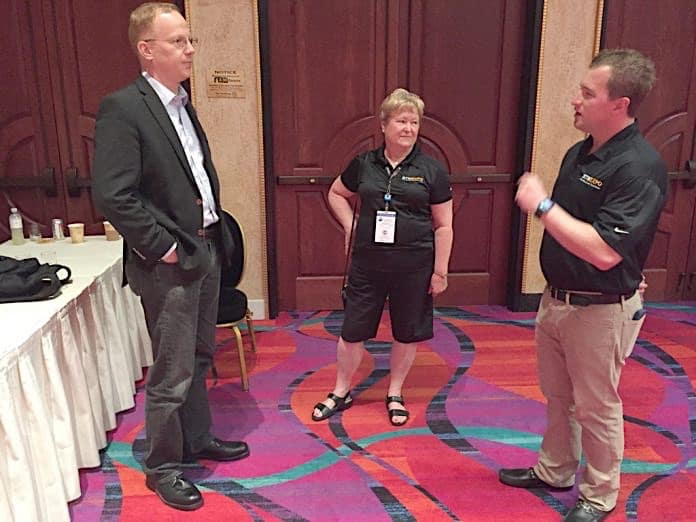Odds are the school district or school bus company you work for or work with is experiencing a driver shortage. What’s new, right? Now ask yourself what role your department’s or company’s employee culture plays in this shortage. Have any idea?
Some of you might say that this is a problem for HR. Not if you are the leader of your organization.
The 100-plus industry leaders attending today’s Transportation Director Summit dove into this topic with Don Harkey, chief inspirational officer and founder of People Centric Consulting Group. Culture drives performance, and great companies focus on culture, and the systems and processes that drive culture.
According to a Gallup poll, 72 percent of new employee applicants turn to social media such as Linkedin or Glassdoor to contact people who already work for an organization to find out what it’s really like to work for the company. Harkey’s point? Your best recruiters are the bus drivers, mechanics and department staff who already work for you.
How satisfied are your current drivers or garage pools? They will influence whoever you hire. If your current drivers aren’t happy, for example, what makes you think they’ll sell your district or company to a new applicant? What kind of culture reigns in your organization? Do you even know?
One thing’s for sure. Leaders in transportation and business, in general, know who their lowest-performing employees are, especially those who are “toxic.” Again, according to Gallup, 17 percent of your workforce are these disgruntled employees who are apt to fight anything and everything management tries to implement. These employees shoot down all ideas, claiming they are “stupid.” Maybe they think of, or even call management stupid. Know who I’m talking about?
Introduce one of these employees into a group of 20 engaged employees, the latter which only comprises 32 percent of the company, and Harkey said performance drops by 30 percent. Talk about sucking the wind out of the sails. Meanwhile, the other 51 percent of employees are not engaged. Yes, they show up on time and do their job, mostly anyway. But they punch the clock and in between do the bare minimum.
However, highly engaged employees account for 48 percent fewer work accidents, 41 percent fewer quality defects and 41 percent less health care costs, he added. They are also 89 percent less likely to leave an organization than their disengaged counterparts.
Harkey also pointed out that 51 percent of employees are also currently looking for another job. But 51 percent are also less likely to leave their company if the values and culture are well-defined.
Harkey said student transporters need to understand the positive and negative motivators for why people work. Yes, people need to make money and some appreciate potlucks and ping-pong tables. But employee culture is much more than these.
The positive factors are that they enjoy what they do, believe in the outcome and are learning and growing professionally and personally. Negative factors are that they don’t want to disappoint their boss or coworkers, they aren’t sure why they work besides the fact they’ve always done it and, wait for it, economic pressures. In other words, they have to work to make money.
If the copy machine in the office was only working 32 percent of the time, the organization would fix the problem, probably in less time than the equipment took to degrade to such a level. Then why aren’t organizations addressing employee culture? It’s more important to an organization’s bottom line than sales, safety or anything else because employee culture is the ultimate driver of the organization’s success. This means employee culture requires continuous attention from management.
Culture is habit.
Harkey will present a Keynote Address to the full STN EXPO conference on Monday at 8 a.m.

















